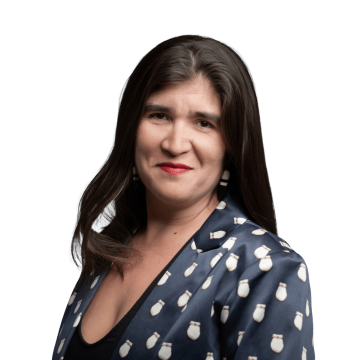Autumn Cavender
2024 Bush Fellow

Autumn Cavender (Upper Sioux Community) is revitalizing traditional birthing practices to support Indigenous community health. She draws on the wisdom she acquired from her Dakota culture to address the needs of the communities she serves. Autumn developed her own midwifery practice and helped found a national Indigenous midwifery organization, encouraging more Indigenous people to pursue a midwifery career. She wants to build on this work in ways that help bring culturally based childbirth programming to more communities and inspire the possibility of a new kind of birth center based on Dakota/Lakota practices. She hopes that strategies like this can bring new energy and focus to rural healthcare. To make this change possible, she will grow her understanding of different kinds of care treatment methods and build a support network with leaders working on similar issues across other Dakota/Lakota communities.
What has informed your approach to leading change in your community?
I was raised in a household that was critical of settler colonialism. I always had in the back of my head that the social context that we live in is not normal nor desirable. When I look at the world and homeland around me, as an Indigenous person, it’s like looking with a 3D glass, where one lens is red, and the other is blue. I see what homeland used to be and what it could be.
This was my approach to birth work too. Why is this the dominant paradigm in how we engage with our bodies and our babies as well? That’s my biggest impetus to social change. These two-toned glasses of what is: what history was ancestrally and what it could possibly be moving forward.
What is the best piece of advice you have ever been given?
When I was a midwifery student, we worked 24-hour shifts where we had to be on our feet without sleep, delivering babies. Another peer and midwife would say that the sun is going to rise to help us keep going and the only way out is through.
What is your favorite quote or expression?
It’s from the Micronesian navigator and teacher, Mau Piailug, who talks about the voyage of the Hōkūleʻa, which was the first ship that made it from Hawaii to Tahiti solely using traditional navigation techniques. He said, “faith is trust in the wisdom of our ancestors.” We know that our ancestors provided the correct wisdom and teachings in how to live with each other and in human and nonhuman society.